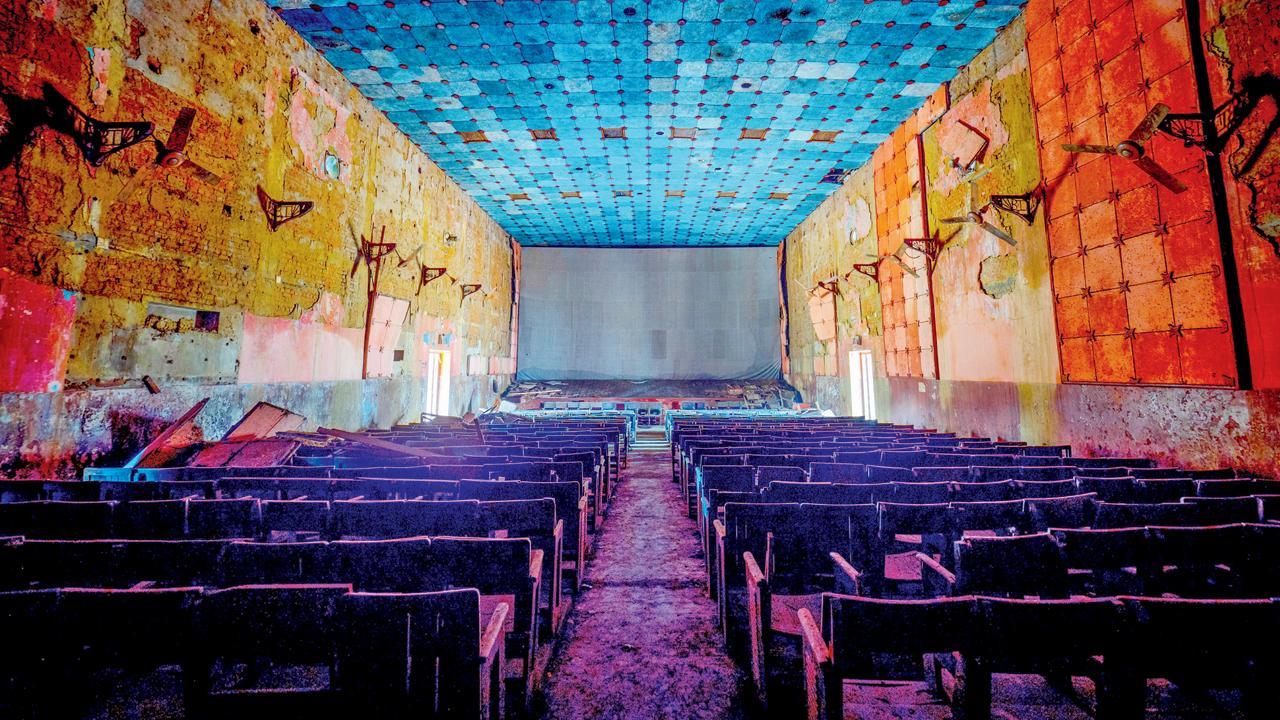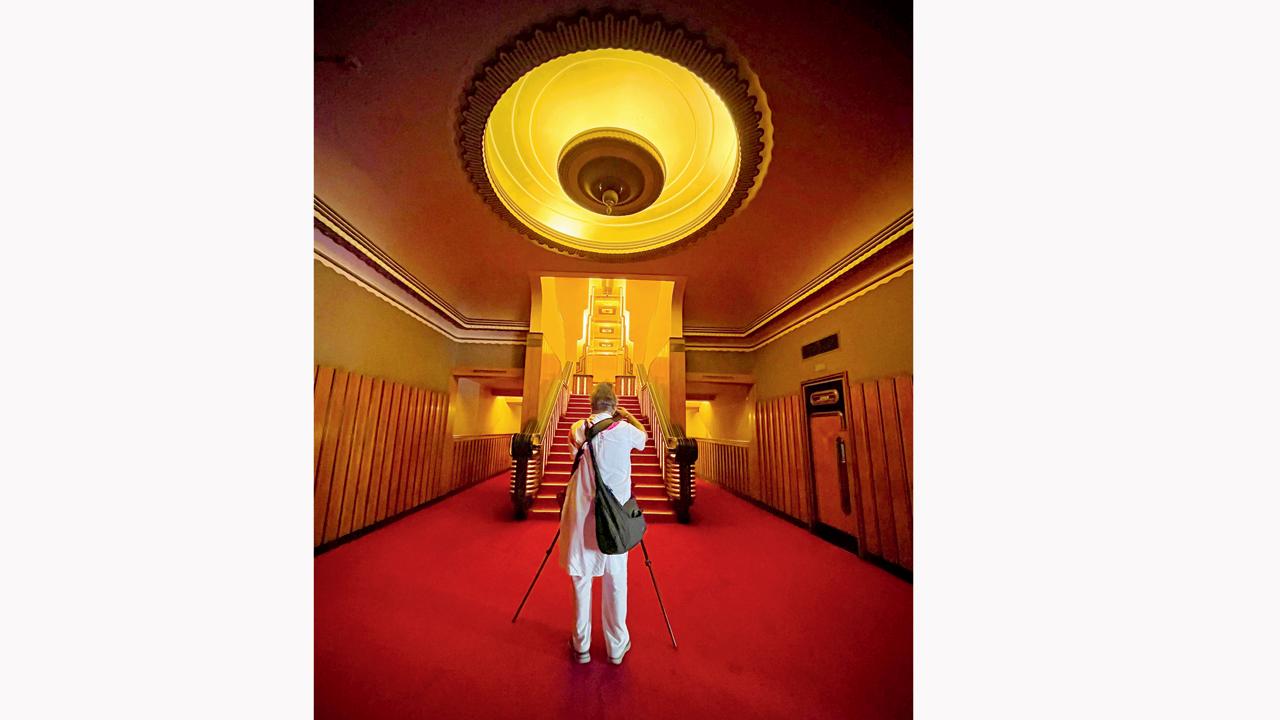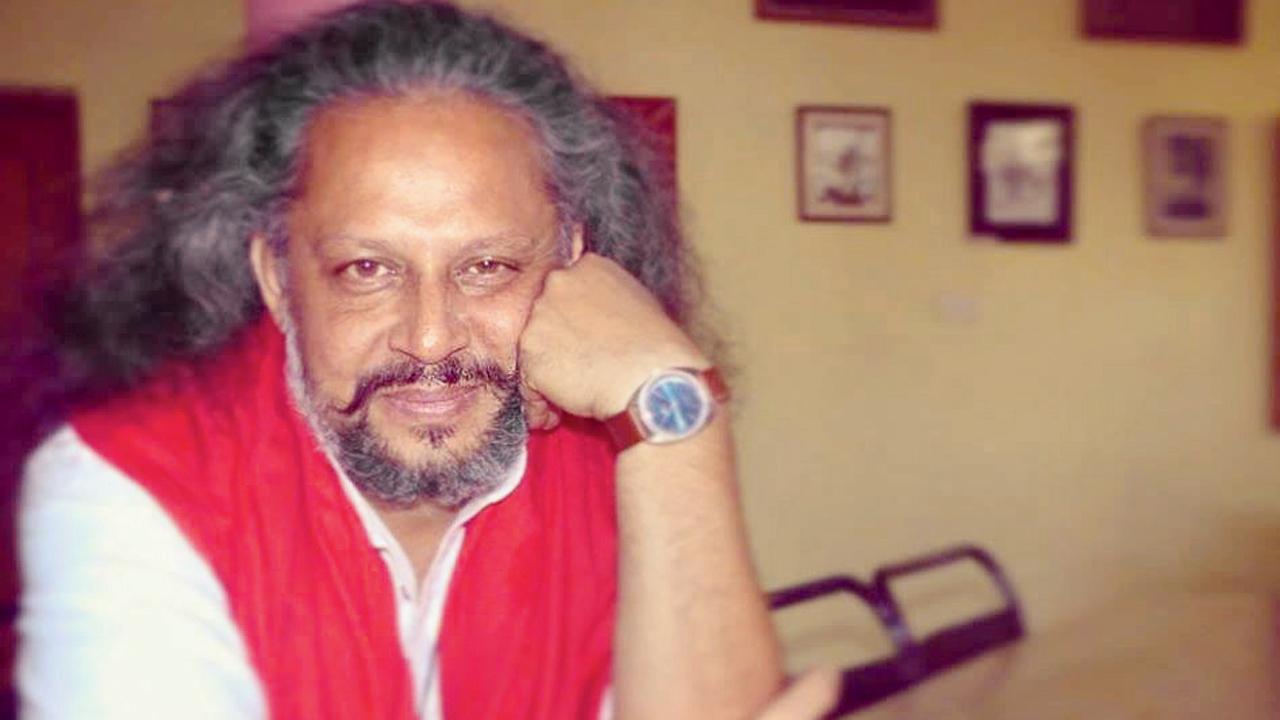An ongoing exhibition at a SoBo café captures photographer Hemant Chaturvedi’s journey to document over 1,000 single screen cinemas across the country

A view of the interiors of Bharat Talkies at Najibabad in Uttar Pradesh
This writer grew up in an age before malls. One of our most delightful days was when the family would dress up for a matinee show on Sunday at the single screen cinema in the neighbourhood. For cinematographer and photographer Hemant Chaturvedi, finding rare single screen halls in a country dotted by multiplexes has been the mission for the last five years. His latest exhibition, Now Showing, at the Kala Ghoda Café captures 32 photographs of the ancient, broken beauty of these storehouses of nostalgia.
ADVERTISEMENT
“I have travelled across the breadth of the country over the last five years,” the 55-year-old Chaturvedi tells us. It started with the accident of losing money at the Kumbh Mela when a tent cinema operator fooled him during a trip. Following the event, he happened to pass by a run-down cinema from his childhood in his hometown of Prayagraj (then Allahabad) that caught his eye. “It was stripped of everything that a cinema would have, but the interiors and exteriors of the building were so beautiful. It inspired me to shoot three more cinemas in the city,” he tells us.
 Chaturvedi photographs Mumbai’s Liberty Cinema. Pic Courtesy/Kunal Singh
Chaturvedi photographs Mumbai’s Liberty Cinema. Pic Courtesy/Kunal Singh
These cinema halls are more than just platforms for film exhibition, the cinematographer of Maqbool (2003) explains. “I remember stopping by a village en route a theatre in Punjab. In a conversation, the passers-by recalled how it was the only cinema house catering to the neighbouring villages. A week before a show, one person from the village would be sent to buy 20 to 30 tickets. On the said day, the entire village would pack into bullock carts and head to the cinema,” he shares.
Among the discoveries along the way were the distinctive signboards for women only ticket counters, very desi warnings about pickpockets and power cuts. Chaturvedi made it a point to document these, as well as projectors with projectionists, ‘the last of their kind’ as he calls them. Their work influenced how we viewed the cinema.
This influence is not just limited to people but also to cultural and architectural trends. The veteran says, “I remember finding the inside of the cinema house in Hubli that was a replica of Liberty in Mumbai. Another instance was a story I heard about Metro in Kolkata being the first cinema house in Bengal to feature Art Deco architecture. Soon, the rich in the city would ask their architects to design buildings in ‘Metro pattern’, and not Art Deco, mind you.”
 Hemant Chaturvedi
Hemant Chaturvedi
It was during his cross-country search that he discovered the works of architect WM Namjoshi, who designed Mumbai’s Maratha Mandir, Naaz and Liberty cinemas. “He also designed Raj Mandir in Jaipur that is still functional, and quite popular. The owner told me, ‘Hemant, people come to see my theatre, not the movie’. And he is right,” Chaturvedi tells us. Having photographed 19 of the 33 cinemas built by Namjoshi, he is in pursuit of the last two — Naaz and Maratha Mandir.
Armed with only a tripod, the cinematographer took care to shoot only in natural light. “I do not believe in disturbing things as I see them, especially when it is for documentation,” he notes. Often, he would have to jump over walls, wait hours for the right time of the day for sunlight to light up the space. “If I returned with three good shots and an anecdote after a trip, my day was a success,” he laughs.
The exhibition at the restaurant will feature 32 photographs including 10 images of ticket windows with graffiti such as ‘Beware of pickpockets.’ “The exhibition is only a small part of the 90,000 photographs I have taken. But exhibiting at the café has generated more conversation, with people often talking to me about their own experiences at single screen halls, their first movies, et al,” he says. While multiplexes might offer comfort, these broken-down halls still hold the power of conversation.
Till March 31; 8 am onwards
At Kala Ghoda Café, Rope Walk Lane, Kala Ghoda, Fort.
Free
 Subscribe today by clicking the link and stay updated with the latest news!" Click here!
Subscribe today by clicking the link and stay updated with the latest news!" Click here!








